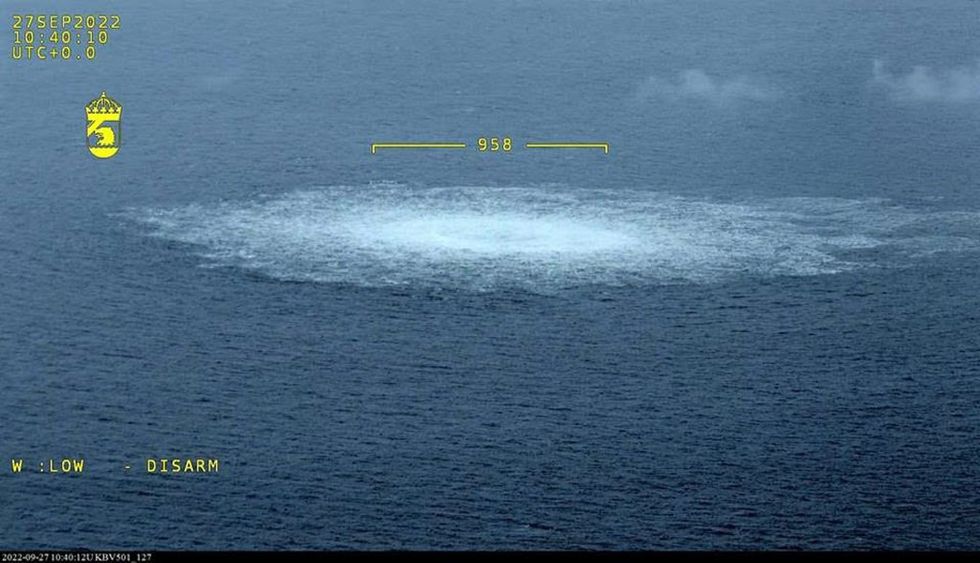Underwater sabotage: Are global powers targeting fiber-optic cables?
As wars rage on all around the world, the fog of war and accusations of sabotage continue to plague international relations. According to a Newsweek report, Nikolai Patrushev, a close ally of Putin, recently accused U.S. and U.K. intelligence operatives of past sabotage actions and plans for future attacks. Specifically, he accused the U.S. and U.K. of “intending to sabotage underwater internet cables and planning to destabilize the maritime energy trade.”Both NATO allies and Russia have accused the other side of maritime sabotage. A September CNN article, citing U.S. officials, alleged that Russia was planning a similar plot to sabotage “underwater infrastructure by order of the defense ministry's Main Directorate for Deep-Sea Research (GUGI).”Future attacks on fiber-optic cables and other infrastructure would have the aim of causing 'chaos' in global energy markets, 'including by destabilizing maritime transportation.'However, Crimean Wind, a Telegram channel reporting Patrushev’s comments, posted, "It would be funny, but such statements often sound like a cover for their own intentions."Nikolai Patrushev, a Putin aide and chairman of Russia’s maritime board, is also one of the main forces behind Russia’s war on Ukraine. On Monday, he told the newspaper Kommersant that U.S. and U.K. intelligence were “behind the September 2022 attacks on the Nord Stream 1 and Nord Stream 2 gas pipelines.”Despite several investigations by Sweden and Denmark and an ongoing investigation by Germany, it is still unclear who was behind the Nord Stream pipelines attack. Regarding speculations that Ukraine was behind these attacks, Patrushev said that the Ukrainian Navy had "neither the equipment nor the trained specialists to carry out a deep-sea terrorist attack" and that "only special forces units of NATO countries could carry out sabotage of this scale."He went on to tell Kommersant that the U.S. and U.K. would be executing these sabotage operations to “promote their economic interests.” Further, he speculated that future attacks on fiber-optic cables and other infrastructure would aim to cause “chaos” in global energy markets, "including by destabilizing maritime transportation."Newsweek went on: “Patrushev said this was the intention behind U.S. strikes against the Houthis in the Persian Gulf, which Washington has conducted in response to attacks by the Iranian-backed Yemeni group against shipping in the region.”While it is difficult and will likely be impossible to discern who was responsible for these attacks, Patrushev is certainly correct about one thing: Attacks on global infrastructure will continue to sow chaos on the world stage during these already uncertain times.


As wars rage on all around the world, the fog of war and accusations of sabotage continue to plague international relations.
According to a Newsweek report, Nikolai Patrushev, a close ally of Putin, recently accused U.S. and U.K. intelligence operatives of past sabotage actions and plans for future attacks. Specifically, he accused the U.S. and U.K. of “intending to sabotage underwater internet cables and planning to destabilize the maritime energy trade.”
Both NATO allies and Russia have accused the other side of maritime sabotage. A September CNN article, citing U.S. officials, alleged that Russia was planning a similar plot to sabotage “underwater infrastructure by order of the defense ministry's Main Directorate for Deep-Sea Research (GUGI).”
Future attacks on fiber-optic cables and other infrastructure would have the aim of causing 'chaos' in global energy markets, 'including by destabilizing maritime transportation.'
However, Crimean Wind, a Telegram channel reporting Patrushev’s comments, posted, "It would be funny, but such statements often sound like a cover for their own intentions."
Nikolai Patrushev, a Putin aide and chairman of Russia’s maritime board, is also one of the main forces behind Russia’s war on Ukraine. On Monday, he told the newspaper Kommersant that U.S. and U.K. intelligence were “behind the September 2022 attacks on the Nord Stream 1 and Nord Stream 2 gas pipelines.”
Despite several investigations by Sweden and Denmark and an ongoing investigation by Germany, it is still unclear who was behind the Nord Stream pipelines attack.
Regarding speculations that Ukraine was behind these attacks, Patrushev said that the Ukrainian Navy had "neither the equipment nor the trained specialists to carry out a deep-sea terrorist attack" and that "only special forces units of NATO countries could carry out sabotage of this scale."
He went on to tell Kommersant that the U.S. and U.K. would be executing these sabotage operations to “promote their economic interests.” Further, he speculated that future attacks on fiber-optic cables and other infrastructure would aim to cause “chaos” in global energy markets, "including by destabilizing maritime transportation."
Newsweek went on: “Patrushev said this was the intention behind U.S. strikes against the Houthis in the Persian Gulf, which Washington has conducted in response to attacks by the Iranian-backed Yemeni group against shipping in the region.”
While it is difficult and will likely be impossible to discern who was responsible for these attacks, Patrushev is certainly correct about one thing: Attacks on global infrastructure will continue to sow chaos on the world stage during these already uncertain times.
Originally Published at Daily Wire, World Net Daily, or The Blaze
What's Your Reaction?

































































































